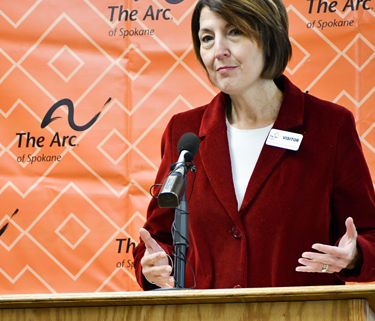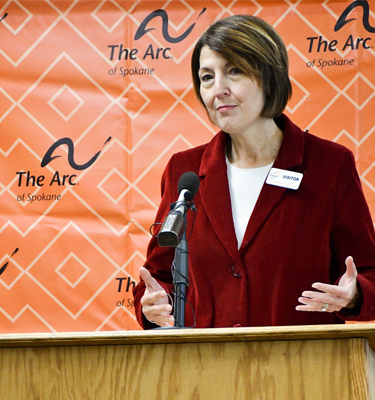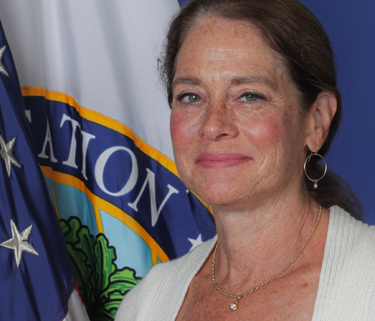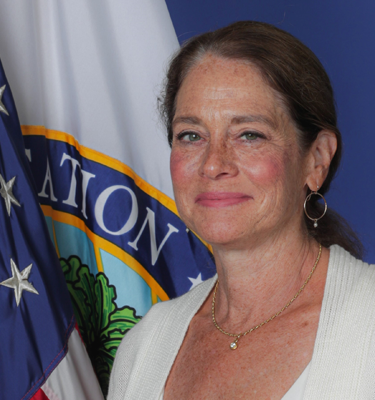5 Disability Stories Journalists Should Be Covering Right Now (2023)
Are you a journalist looking for impactful stories that demand greater coverage? If they aren’t already, disability issues should be part of your reporting. One in 4 U.S. adults and 1 in 6 people worldwide report having a disability, statistics that are likely underreported, yet this population remains underrepresented in media. Increased coverage is crucial for social progress. When news stories ignore the disability perspective, they perpetuate exclusion and misunderstanding. By spotlighting disability voices and angles, journalism can help dismantle stigma, drive policy reform, and push society closer to inclusion and equality.
The Arc is here for you. We’ve been driving positive change for individuals with intellectual and developmental disabilities (IDD) for almost 75 years. To do our part in media representation, we’re launching this new blog where we’re bringing you timely and often overlooked stories.
Here are 5 urgent angles you should report on in Winter 2023 and Spring 2024:
1. The Home and Community-Based Services Funding Crisis
Every person deserves the freedom of living in their own homes, being a part of their communities, and choosing how they spend their days. Medicaid’s home and community-based services make that possible for millions of people with disabilities and older adults, supporting daily needs such as dressing, bathing, meal preparation, taking medication, employment support, mobility assistance, and more. Unfortunately, chronic underfunding of HCBS has created a catastrophe for people who need it most, resulting in a national shortage of direct care workers and years-long wait lists for access to services. This access crisis is now exacerbated by the end of Medicaid continuous enrollment this year, which has led to states kicking more than 10 million people off Medicaid. Without access to basic support for daily living, people with disabilities and older adults are at risk of being confined, isolated, and neglected in institutions or trapped in their homes. With dwindling access to HCBS, the burden is increasingly falling on families to step in as caregivers, leading to financial hardship, lost jobs, social isolation, and mental and physical exhaustion.
Powerful journalism exposing the impact of this crisis can spur public pressure and policy reform, particularly in getting emergency federal funding in the end-of-year fiscal package. Storytelling focused on those confined against their will, disabled people who lost their HCBS access due to the Medicaid unwinding, or families under strain due to lack of accessible care can shine a light on this overlooked issue.
2. Disability-Based Discrimination in Health Care
People with disabilities face a multitude of barriers in accessing our health care system. One pervasive and largely overlooked issue is widespread disability-based discrimination in health care, and its dire implications. The issue is complex and multifaceted, but some of the barriers include inaccessible equipment and physical environments, a lack of training and time in caring for people with disabilities, and explicit and implicit biases including assumptions about quality of life and worthiness. This leads to people with disabilities being denied life-saving treatments or even routine preventative healthcare at much higher rates. Ableism in healthcare directly limits lifespans and causes avoidable suffering. Black and brown people with disabilities face particularly dangerous disparities.
The U.S. Department of Health and Human Services (HHS) is proposing new regulations that would prohibit medical providers from discriminating against people with disabilities and set new standards for accessibility at the doctor’s office. Section 504 of the Rehabilitation Act of 1973 is a landmark civil rights law that prohibits discrimination on the basis of disability in programs and activities that are funded by the Federal government. Unfortunately, it hasn’t been updated for 50 years ago. The proposed updated rules are necessary to ensure disabled peoples’ lives are not valued less than others and that health care is accessible to all.
Increased journalism focused on exposing discrimination and disregard for disabled lives is vital. Storytelling and data-driven reporting can raise public awareness and pressure health systems to reform. We must make medical providers see all patients as equally deserving of quality treatment.
3. Overcriminalization of People With Disabilities
People with disabilities, especially people of color, are dramatically overrepresented in the criminal justice system. Yet media coverage often fails to capture their experiences. According to the Bureau of Justice Statistics, people with disabilities face much higher arrest and incarceration rates – for example, Black youth with disabilities are 17% more likely to be arrested than their non-disabled peers. And studies show that up to 50% of people shot and killed by police have a disability. Despite the prevalence of this issue, many officers lack training on interacting with and supporting this high-risk population. Their failure to accurately perceive disabilities often escalates encounters, increasing trauma, violence, and unjust stigma. There are solutions, like The Arc’s National Center on Criminal Justice and Disability’s (NCCJD) efforts in crisis prevention and response teams led by the disability community. Similar initiatives recognize that reform requires centering the voices of those impacted.
We urge you to investigate the entanglement of people with disabilities in the justice system and spotlight solutions. Share stories that humanize, contextualize, and advance change. Your reporting has immense power to create a more just, inclusive society.
4. Lack of Employment Opportunities
Diversity in our workforce strengthens cultures and bottom lines, but one important group continues to be overlooked: people with disabilities. Meaningful employment not only provides vital income, but it also fosters independence, dignity, and respect. Yet people with disabilities, particularly people with IDD, are extremely underrepresented in the workforce, despite their desire to work. People with disabilities have long faced exclusion and seclusion, and that issue persists today. Barriers include limited job opportunities, misconceptions about accommodations, and overt discrimination. They often leave school with little to no community-based vocational experience or planning for transitioning from school to work. When employed, few people with IDD have opportunities to advance, explore new possibilities, or, in their later years, retire. Unrealistically low limits on assets and earnings add to a fear of losing vital public benefits if they work too many hours or earn too much. Lack of other services — like transportation or accommodations — can also hinder success.
Many people with IDD succeed in roles alongside people without disabilities. Data proves that businesses employing people with disabilities outperform businesses that do not. In addition, people with disabilities, on average, stay in their jobs longer than their counterparts without disabilities. Journalists can explore the barriers to employment, workplace discrimination, myths about abilities and accommodations, and inclusive hiring practices. Your work can help break down barriers, reduce discrimination, and create a society where everyone has access to meaningful employment.
5. Exclusion From Sexual Education
Everyone deserves access to accurate, unbiased, and inclusive sex and relationship education. Yet a shocking majority of people with IDD – up to 84% – do not receive sexual education in school systems and other settings. At the same time, some individuals may engage in sexual activity as a result of poor options, manipulation, loneliness, or physical force rather than as an expression of their sexuality. This leads to another horrifying statistic: people with IDD are sexually assaulted and/or raped at a rate seven times higher than those without disabilities. The lack of access to sexual education varies widely by state and only five states require sex ed to be accessible to people with disabilities. For decades, people with IDD have been thought to be asexual, having no need for loving and fulfilling relationships with others. Individual rights to sexuality, which is essential to human health and well-being, have been denied. This loss has negatively affected people with IDD in gender identity, friendships, self-esteem, body image and awareness, emotional growth, and social behavior. Another sensitive dynamic is the parent’s understanding and acceptance that sex education is appropriate and important for their child with a disability. Every person has the right to exercise choices regarding sexual expression and social relationships.
Journalists can play an important role in advocating for equitable access to comprehensive sex education programs, shedding light on the imperative of empowering people with IDD to make informed decisions about their sexual health and relationships.
Considering how large and diverse the disabled population is, we encourage you to include their viewpoints in all of your stories, whether they relate to disability or not! We also hope you will investigate these topics in your own communities. Please contact us at dilworth@thearc.org if you need sources, background information, or other issues. Also, be sure to visit our Press Center to find guides on reporting on disability. We are excited to see your impactful work!



 “The disability community is full of untapped potential just waiting to be unleashed,” said Congresswoman Cathy McMorris Rodgers, U.S. Representative for Washington State. “In today’s digital world, innovative technology is the key to unlocking new and exciting opportunities for individuals living with disabilities to achieve their goals. I’m grateful for the efforts of Amazon and The Arc to further empower every person with a disability to live a more full and independent life.”
“The disability community is full of untapped potential just waiting to be unleashed,” said Congresswoman Cathy McMorris Rodgers, U.S. Representative for Washington State. “In today’s digital world, innovative technology is the key to unlocking new and exciting opportunities for individuals living with disabilities to achieve their goals. I’m grateful for the efforts of Amazon and The Arc to further empower every person with a disability to live a more full and independent life.”
 Katy is a visionary leader who has devoted her career to disability rights, and she has deep connections in the field. She joins The Arc from the U.S. Department of Education, where she served as Deputy Assistant Secretary in the Office of Special Education and Rehabilitative Services. Prior to that role, she was Executive Vice President of Public Affairs for the American Physical Therapy Association (APTA) and for Easterseals. She is widely regarded for her bipartisan and collaborative work, earning her roles including Past Chair of the Consortium for Constituents with Disabilities (CCD). Earlier in her career, Katy served as Legislative Assistant to Senator Tom Harkin and the U.S. Senate Subcommittee on Disability Policy, where she worked on landmark legislation such as the Americans with Disabilities Act (ADA) and the Individuals with Disabilities Education Act (IDEA). Katy holds a B.A. from Georgetown University.
Katy is a visionary leader who has devoted her career to disability rights, and she has deep connections in the field. She joins The Arc from the U.S. Department of Education, where she served as Deputy Assistant Secretary in the Office of Special Education and Rehabilitative Services. Prior to that role, she was Executive Vice President of Public Affairs for the American Physical Therapy Association (APTA) and for Easterseals. She is widely regarded for her bipartisan and collaborative work, earning her roles including Past Chair of the Consortium for Constituents with Disabilities (CCD). Earlier in her career, Katy served as Legislative Assistant to Senator Tom Harkin and the U.S. Senate Subcommittee on Disability Policy, where she worked on landmark legislation such as the Americans with Disabilities Act (ADA) and the Individuals with Disabilities Education Act (IDEA). Katy holds a B.A. from Georgetown University.





